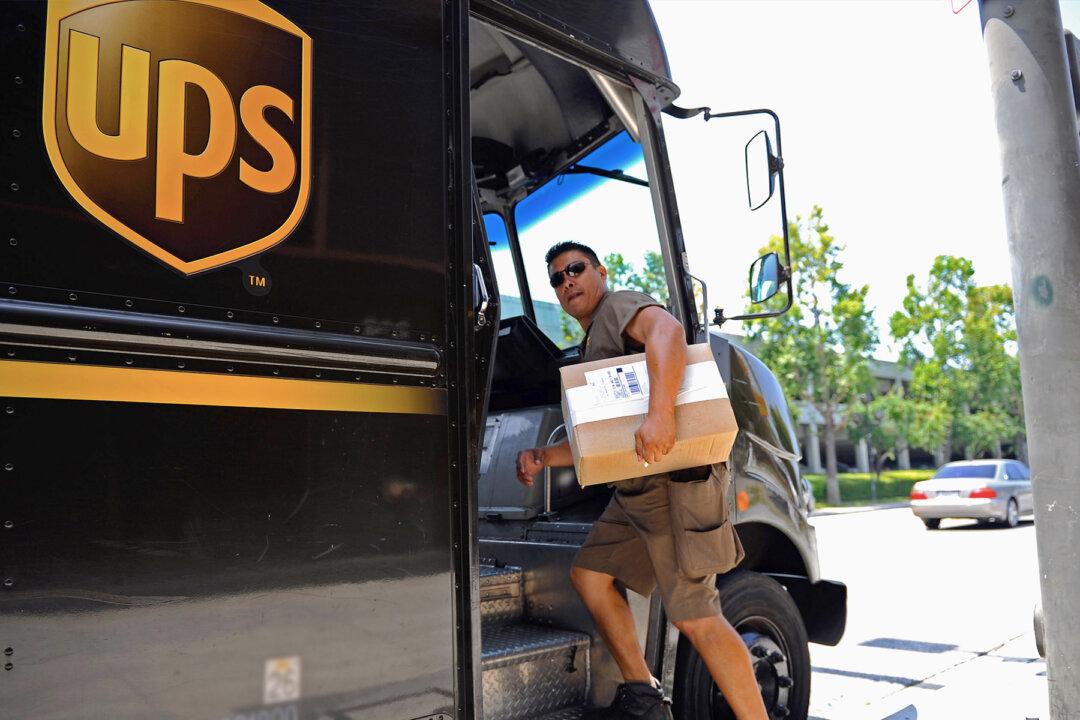Four United Parcel Service (UPS) employees are accused of being involved in a decade-long operation to import and traffic large amounts of drugs and counterfeit vaping oils, police said, as 11 arrests were made over the past two weeks.
The scheme often saw thousands of pounds of narcotics and marijuana shipped weekly from narco-traffickers into the United States and then to various destinations across the nation. Authorities said the substances were transported meticulously in cardboard boxes through UPS’s trucking and delivery systems, the Washington Post reported.





